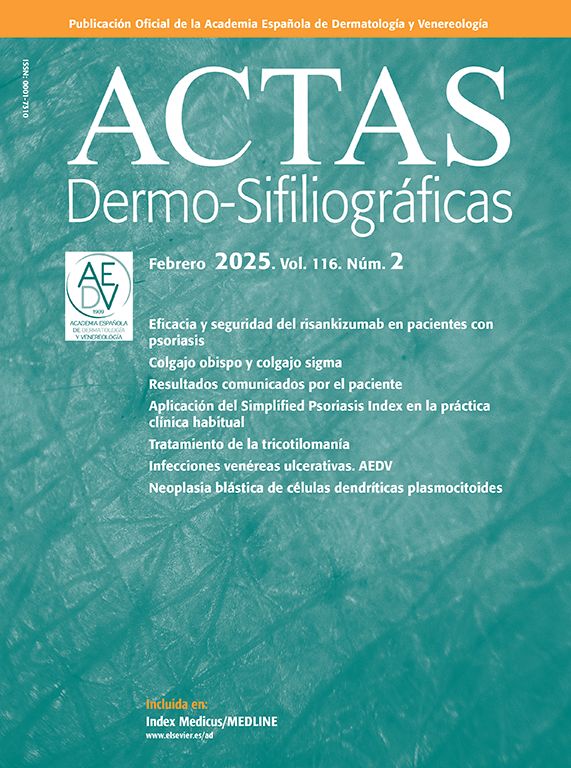Merkel cell carcinoma (MCC) is considered an orphan disease due to its very low incidence. The article by Dañino-García et al.1 reports on a series of 38 patients with MCC treated at their hospital over a period of 16 years. The authors found a 116% increase in the number of cases diagnosed in the second half of the study and also observed an increase in the age of diagnosis and the occurrence of tumors at atypical sites. The increase in incidence is due to greater familiarity with the disease among dermatologists and pathologists and an increase in the at-risk population due to UV exposure, aging, and immunosuppression.
MCC is a fast-growing, highly aggressive tumor characterized by early lymph node metastasis and high mortality. Mortality rates are much higher than for melanoma, for example, with a 10-year survival rate of 17.7% for MCC versus 61.3% for melanoma.2 The overall 24-month survival rate in this series of 38 patients was 69.3% and the strongest prognostic factor was lymph node metastasis.1
Effective medical treatment is needed for metastatic MCC. Conventional first-line chemotherapy is associated with response rates of between 30% and 55%, but response is short-lived (<5 months).3 Second-line chemotherapy does not offer any significant survival benefit, with a 12-month survival rate of 0%.3 The European Medicines Agency recently approved avelumab for the treatment of metastatic MCC. First-line avelumab induces rapid response in 62% to 74% of patients, and 52% of patients who receive this drug as second-line therapy are still alive at 12 months.3,4 The emergence of these new immunotherapy agents brings new hope to patients with MCC.
Please cite this article as: Llombart B. Carcinoma de células de Merkel, un tumor en auge. Actas Dermosifiliogr. 2019;110:337.





